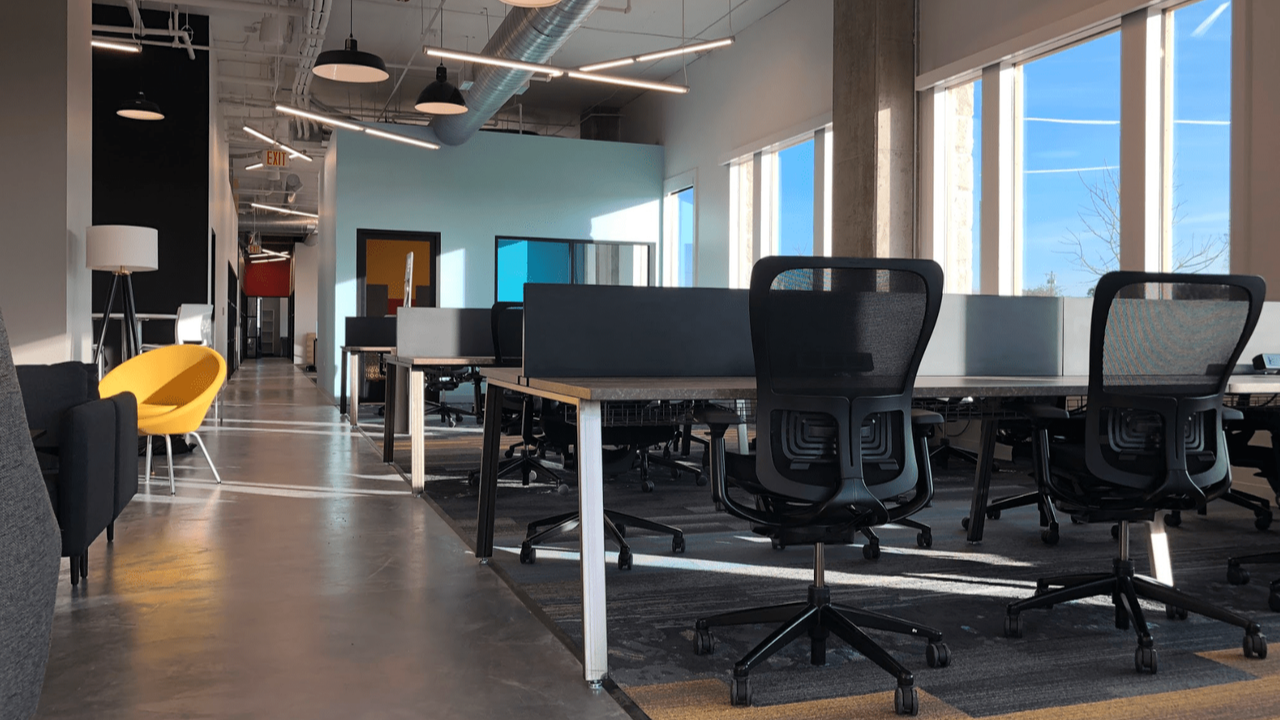As coworking becomes an established option for companies of various sizes, how can someone determine whether it is the right choice for their organization?
One factor to consider includes your growth trajectory. In a traditional five to seven-year lease, fast growth means paying for unused space. So depending on the size of your company, coworking provides flexible, month-to-month leases and the ability to add or subtract square footage. The con of this is the inability to establish your own branding and culture, which could hurt a company’s competitive advantage.
The decline in federal interest rates insinuates a growth in perceived risk. Coworking allows companies to take that risk off their balance sheet and give it to a third party. Still, as WeWork’s failed attempt to go public has proven, this could be cause for financial trouble.
Keeping in mind costs is also important. While rent in downtown Denver averages around $36 per square foot, that does not account for design, furniture, IT, construction and other factors. Although coworking may not be the cheapest option, it alleviates many of the up-front expenses.
The new accounting standards that took effect this year, where leases longer than one year must be reported as both assets and liabilities, could impact the ability to fund new growth. Coworking spaces help companies avoid this practice through short-term leases.















